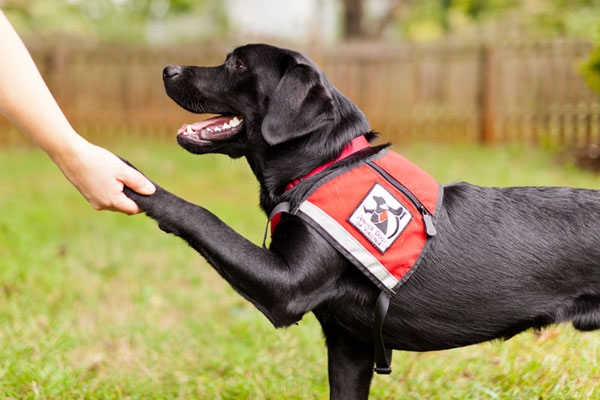While SFTT has long promoted the benefits of service dogs for Veterans with PTSD and TBI, there are some – perhaps many – who resent the intrusion of a dog or service animal in their space.

For instance, Anoka County, Minnesota reportedly had to pass an ordinance to protect the rights of people against the presence of unauthorized animals, particularly those that misrepresent pets as service animals:
“Anoka County now restricts animal lovers from toting ordinary pets into county facilities. From statehouses to corner stores, government officials and business owners across the country are trying to crack down on the number of people who misrepresent pets as service animals and weighing penalties for those flouting rules that restrict which animals may go where.”
While similar legislation exists in most every state for “health reasons,” the definition of the term “service dog” means something different depending on what you are talking about. For instance, in an article published on Jan 6, 2018 in the Star Tribune of Minnesota the following “discussion” ensues:
“Under the Americans With Disabilities Act, service animals can go wherever their owners go, from the library to public transit to the corner cafe. Not so with an emotional support animal, except when it comes to flying, which is guided by a different law.
And when people say “companion animal?”
“In a legal sense, a companion animal means pet,” Wisch said.
A service animal is a “defined right” for an individual with a disability, while an emotional support animal is a type of accommodation, said Kevin Lindsey, Minnesota commissioner of human rights.”
Presumably, the Department of Veterans Affairs (“the VA”) agrees with the Minnesota Commissioner of Human Rights since the VA provides service dogs for Veterans with physical disabilities, but has yet to determine whether to broaden this policy to support Veterans who require “emotional support” during times of crises.
While one can certainly appreciate the fact that a service dog may represent a unhygienic threat to someone in a public place, it seems ludicrous to create hard rules to protect against the abhorrent behavior of a small minority. Will it be necessary to card “service dogs” or their owners at public establishments to insure that the dogs papers are in order?
With suicide rates among Veterans still high and an opioid epidemic that is ravishing America, it is hard to believe that the public can be distracted by this silly assault on individual rights.
While individual freedoms must certainly be respected against the “demands” of the public good, logic and statistical anomalies often distort the truth.
For instance, the Washington Post alarmingly reports that 963 people were “shot by police” in 2016. Is this a national calamity or a reasonable defense that our police exercised reasonable prudence before taking another person’s life? Make up your own mind by consulting the GitHub database.
According to the CDC database, people dying from gun violence last year exceeded 33,000. One would hope that the public is focused on the causes for the other 97% with the same degree of attention that they monitor police gun violence.
We live in an imperfect world, but the men and women who have served our country so valiantly deserve access to service animals for both physical and mental disabilities. Hopefully, the small minority who are inconvenienced by this evident need will have the common sense to dine elsewhere and, perhaps, tip their hat and say “thank you.”
ShareJAN
2018

About the Author:
STAND FOR THE TROOPS ("SFTT") is a 501(c)(3) educational foundation dedicated to safeguarding the physical and emotional well-being of America’s military personnel. Currently, our most pressing mission is to investigate and connect veterans to result-oriented treatments for the Traumatic Brain Injuries (TBI) and Post Traumatic Stress Disorder (PTSD) now triggering so many military suicides.